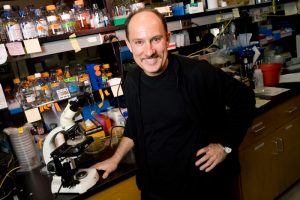Enter your address to receive notifications about new posts to your email.
Articles tagged GSA Fungal Genetics Conference
(5 results)
-
News
New members of the GSA Board of Directors: 2024–2026
We are pleased to announce the election of four new leaders to the GSA Board of Directors: 2024 Vice President/2025 President Brenda Andrews Professor, University of Toronto It’s an honor to continue my association with the Society by serving as Vice President of the Board of Directors. I have broad knowledge of the ongoing activities…
-
#Fungal22 GSA Poster Award Winners
We are pleased to announce the GSA Poster Award winners from the 31st Fungal Genetics Conference! Congratulations to all! Jorge Lightfoot, University of Oklahoma Health Sciences Center Fungal hypoxia adaptation is critical for the establishment of keratitis vayu maini rekdal, UC Berkeley CRISPR-Cas9 engineering of A. oryzae for meat-like flavor and appearance Amber Matha,…
-
Hybrid (conference) vigor
Four GSA communities are excited to meet in person in 2022 — and to experiment with hybrid conferences that combine the benefits of online and in-person meetings. After two years of online meetings of all kinds, we are thrilled to return to scientific conversations in person! In 2022, many of us will be together again,…
-
2019 Fungal Genetics Conference Poster Winners
Congratulations to all the winners of poster awards at the 2019 Fungal Genetics Conference! Fabrizio Alberti Leverhulme Trust Early Career Fellow, University of Warwick “The aim of my research is to understand how antibiotic and anticancer terpenoid molecules are made by basidiomycete fungi.” María Angélica Bravo Núñez Graduate student, Stowers Institute for Medical Research “I study…
-
2019 Edward Novitski Prize awarded to Joseph Heitman
Prize recognizes extraordinary creativity and ingenuity in genetics research. Joseph Heitman, MD, PhD of Duke University is the recipient of the 2019 Genetics Society of America (GSA) Edward Novitski Prize. Heitman is honored for his work on human fungal pathogens and for identifying the molecular targets of widely-used immunosuppressive drugs. The latter work proved to…





